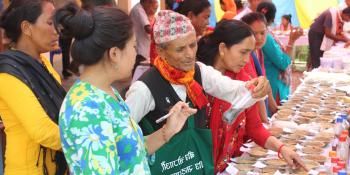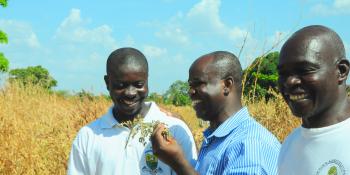What do women farmers want?
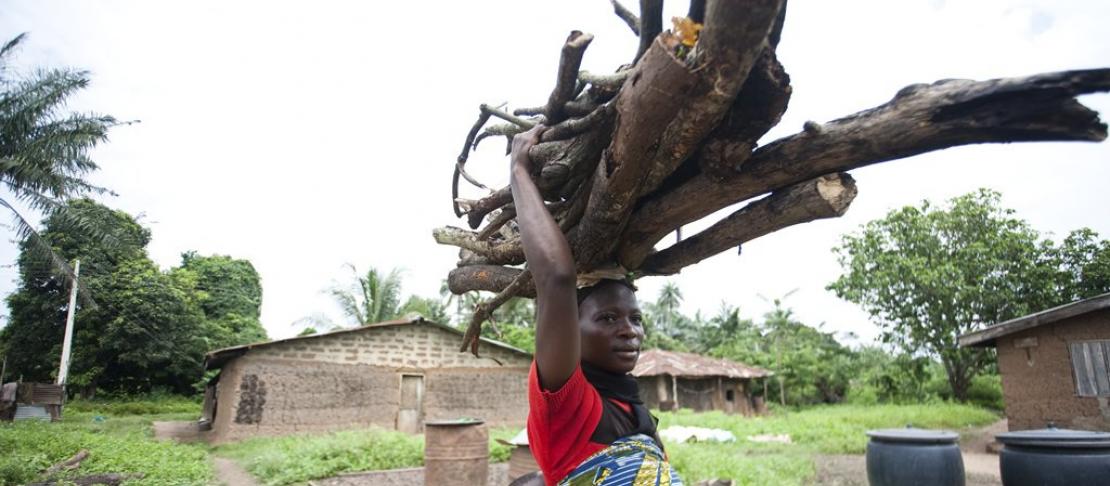
Survey finds women’s specific needs around building climate adaptive capacity and gaining food security are neglected by local development organizations.
We know from previous research that women and disadvantaged groups in developing countries are often more vulnerable to climate change and environmental degradation than men.
If you want to know more about research on closing the gender gap in farming under climate change:
- read our special blog series on Closing the gender gap
- watch the presentations and the panel discussion from the Closing the gender gap event
- follow the #AgGenderGap event hashtag on twitter
Despite this important insight, data from a comprehensive village and organizational baseline survey shows that when it comes to addressing women’s specific needs related to food security and building climate adaptive capacity, organizations are failing to make headway.
Through not specifically targeting and including female participants in their activities, women are not receiving critical agriculture information or participating in development initiatives, with critical consequences for rural food security and livelihoods.
The survey, conducted by the CGIAR Research Program on Climate Change, Agriculture and Food Security (CCAFS) and local partners in the program’s research sites in South Asia and East and West Africa, reveals further that there are discrepancies in what the organizations operating locally claim they do, and what the participating women perceive the organizations do in their communities.
For example, even when organizations reported they reach out to women, the participating women mentioned not being targeted. This was especially apparent in the Tigo Zéno village of southwestern Niger. Here the survey respondent from the agricultural extension service stated that 80% of the female population was reached, while the female participants in the village study said the technical service for agriculture does not reach out to them.
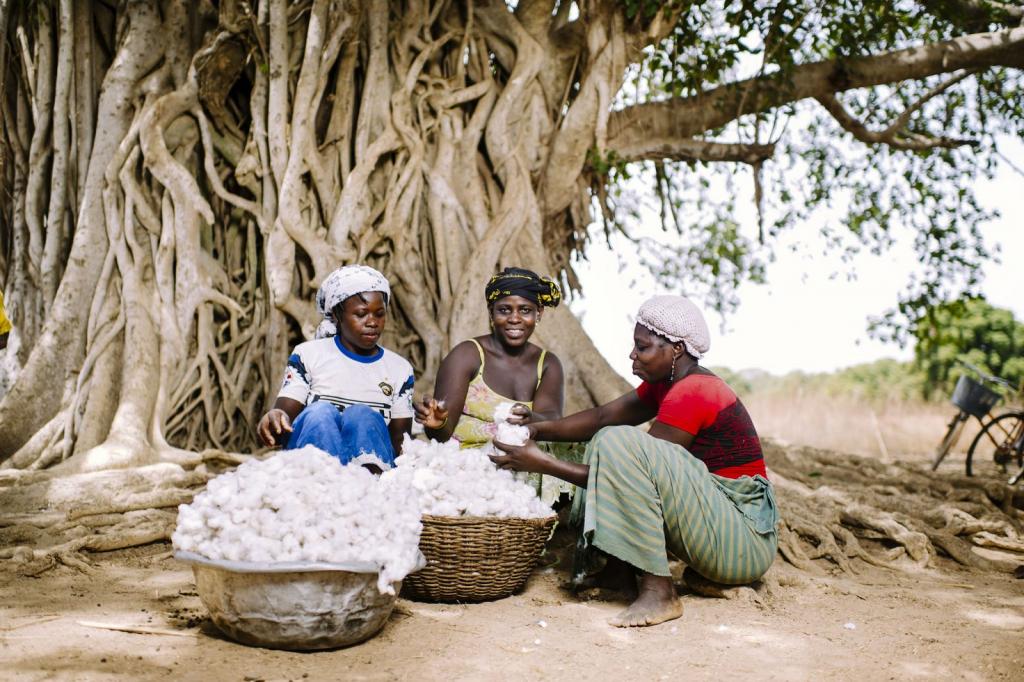
In the photo: Women farmers reported not being targeted by local development organisations and activities in CCAFS regional baseline surveys. Photo: O. Girard/ CIFOR
Meeting women’s food needs
Many of the women mentioned that they need organizational interventions that go beyond the traditional activities of food production; to also address access to and utilization of food products, both of which are critical components of food security. Activities that help increase access to food can be income generating activities, savings and loans programs, or other initiatives aimed at helping households purchase more food from the market. Utilization refers to the biological use of food through an adequate diet, safe drinking water, and proper sanitation and hygiene.
As an example of the disconnect between organizations’ priorities and women’s needs, in the Kamuana village of western Kenya, the participating women said that the focus for improving food security should not be on increasing farm output but on widening the household income-base through non-agricultural activities. This way they can improve their purchasing power and thereby gain access to a variety of food products. According to the women, “traders will always bring food where there is market,” as recorded in the report from the study’s facilitators.
In the village of Kyengeza in southwestern Uganda female participants in the village focus group named 16 different organizations and government institutions active in their community and the surrounding area. Despite this number of groups, the women reported that they have problems gathering fuelwood and water, and they state that these issues are not addressed by the activities of any of the organizations.
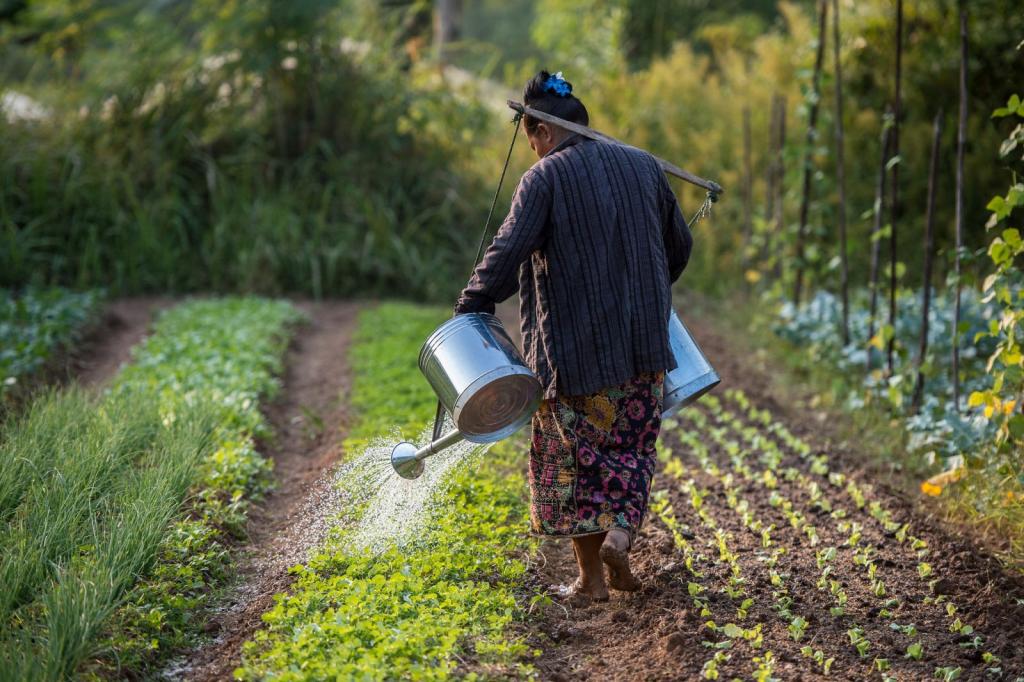
In the photo: Women in an extensive baseline survey by CCAFS reporting having problems gathering fuelwood and water, but that these issues were not addressed by local development organisations. Photo: Asian Development Bank
Also, information from each site reveals that many organizations focus on building capacity to improve agricultural production, but have not yet started building climate adaptive capacity explicitly. This survey was conducted in 2012, and there may be some change that has happened in the years since. CCAFS plans to revisit these sites in a few years to conduct a follow up survey and assess any changes that have occurred.
Groups that make a difference
Many of the organizations in the research sites that women ranked highly in terms of importance to their lives are community-based self-help groups that pool financial resources to provide social protection. Groups that help widows, orphans and disabled community members are important to women as well as groups that facilitate communal lending.
Women are often unable to access formal credit due to barriers such as low rates of land ownership, therefore informal access to credit which allows them to purchase agricultural inputs and make other investments in their household’s well-being is greatly valued.
One interesting finding was that men regularly named health and education-related entities in their top ranked organization lists. We often think of men focusing solely on productive and community politics roles, so we were a bit surprised to find that the men in the study sites quite often listed schools and community health centers in their top five most important organizations.
View the study presentation held at the Gender event:
Recommendations to overcome the gender gap
So how can research for development initiatives like CCAFS and others use these findings to help improve food security and climate change policies and programming?
The first recommendation is to encourage national and international agriculture agencies to more explicitly target women, youths and other disadvantaged groups in their work. There is also a need to do more in terms of addressing access to and utilization of food, both considered by women to be important parts of food security.
Addressing the gaps identified by women and focusing on building adaptive capacity to withstand the effects of climate change can be done by working with existing women’s self-help groups instead of trying to create new groups.
In addition, agencies working in this arena should be cautious not to place any additional burdens on women’s time or otherwise increase their already full list of responsibilities.
It’s also important to remember that addressing gender inequity also means working with men. Since the men in the study ranked organizations focusing on education and health with high importance, there may be opportunities to get men more involved in those aspects of their households’ well-being. This may help to free up some of women’s time for other activities.
Related Reading:
- Learn more about the Baseline process: A global baseline for changing farming practices
- Baseline blogs and articles
CCAFS baseline survey data and materials:
- Baseline household surveys
- Baseline village surveys
- Baseline organisational surveys
Laura Cramer works as independent research consultant for CCAFS Flagship 4 on "Policies and Institutions on Climate-Resilient Food Systems" based in Nairobi, Kenya. Story edited by Cecilia Schubert, Communication Officer and Wiebke Förch, Science Officer for Flagship 4.

